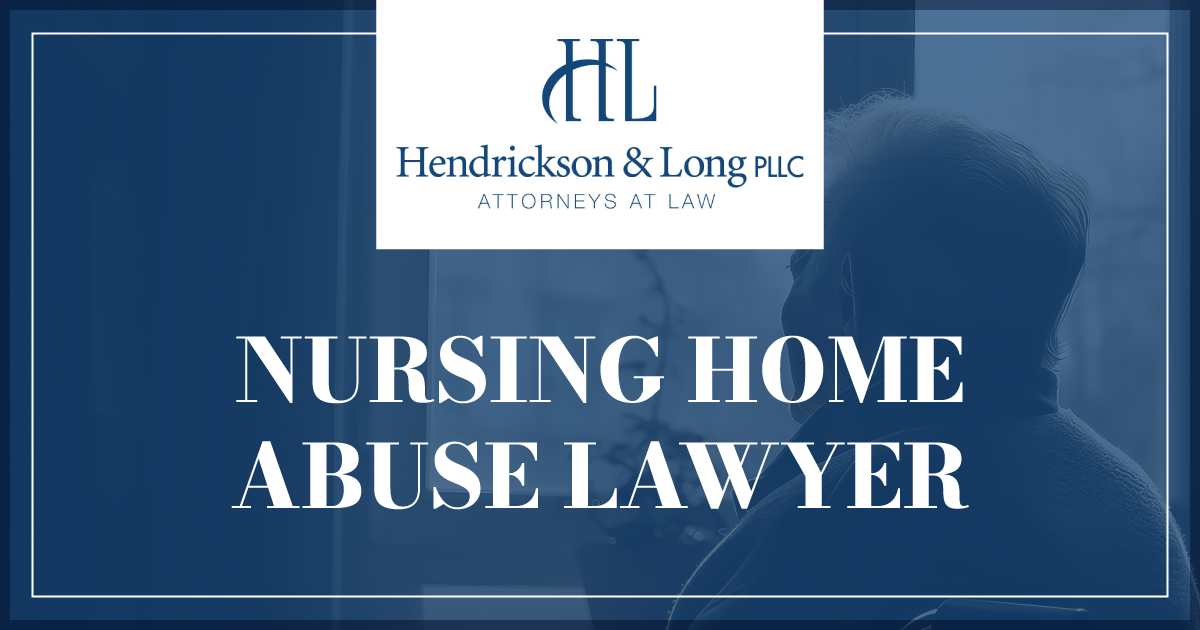Charleston Nursing Home Abuse Lawyer
As your loved ones mature or need special medical assistance, you assume that they will be safe in the care of a nursing facility. Unfortunately, these nursing homes might employ staff members who may not have your loved one’s best interest at heart. In some cases, they may even prey on the vulnerability of these individuals.
Nursing home abuse is a problem, and you need a skilled and experienced Charleston nursing home abuse lawyer who will protect the rights of you and your family members. Hendrickson & Long, PLLC handles these cases with care and compassion. Our legal team will hold those negligent parties accountable for their actions.
Signs of Abuse
Abuse and maltreatment can occur in West Virginia nursing homes. While many people believe that only elderly residents are at risk, these homes also provide care for residents with physical or mental disabilities. Unfortunately, these individuals are particularly vulnerable. This nursing home and elder abuse can manifest in various ways, such as:
- Physical abuse that causes pain or bodily harm to a resident.
- Emotional abuse that leads to distress or mental anguish through nonverbal or verbal acts.
- Neglect happens when staff members or medical professionals fail to fulfill their duties to the patient.
- Financial abuse involves a caregiver illegally or improperly using the resident’s assets, funds, or property.
Sometimes, this abuse can go unnoticed, especially if the person does not have any family members or friends to check on their status in the home.
For that reason, identifying the signs of nursing home abuse is important. Unexplained bruises or a sudden fearfulness may mean that your loved one has suffered some abuse. The most common signs of abuse include:
- Unexplained injuries, such as burns, broken bones, or bruises.
- Behavior changes, including fearfulness, withdrawal, or increased agitation.
- Signs of neglect, such as weight loss, poor hygiene, and bedsores.
Sexual abuse is another serious act that takes place in nursing homes.
Often, the victims do not have the physical or mental capacity to defend themselves. These individuals with memory issues, physical disabilities, or other incapacitating health conditions are at risk. Any physical injuries around the breasts or genital areas could be a sign that your loved one has been abused.
Nursing home staff members are responsible for the care and safety of your family members and other loved ones. When they are negligent in their actions, you have a right to hold them accountable for their actions.
If you notice any of these signs in your loved ones, a Charleston nursing home abuse lawyer can help you determine the next steps in your case.
Steps To Take When You Suspect a Loved One Is Being Abused
If you believe that your loved ones have been abused, you need to take quick action. You will want to:
- Gather evidence: During this time, you will want to document any signs of abuse. Make sure to secure medical records, take photographs, and collect eyewitness statements.
- Notify administrators: Any signs of abuse need to be reported to the management or administrators of the facility. Demanding an investigation can help address your concerns.
- Contact the proper authorities: If you are not satisfied with the response from administrators or the signs of abuse border on a criminal offense, escalate the case. It may be time to contact your local law enforcement or adult protective services to intervene on your behalf.
- Consult a lawyer: Often, these administrators may want to hide the facts of an incident. Remember, they are responsible for keeping your loved ones safe from intentional harm. When they fail in those duties, you need a nursing home abuse attorney on your side.
What Are Your Legal Options When Nursing Home Abuse Occurs?
If you have recognized the signs of nursing home abuse, you do have legal recourse in these cases. First, all nursing home residents have rights. They must be treated with respect and dignity. Even though they live in an assisted care facility, they have a right to privacy and to speak up about abuse without any retaliation.
If you are not satisfied with the outcome of the facility’s investigation or feel that the abuse was negligent, then you can file a lawsuit. In these instances, a family member can file a civil lawsuit against the nursing home owners, administrators, and individual staff members. This case is separate from any criminal charges resulting from an investigation.
The types of compensation available are:
- Economic damages: Medical care required for the abuse, including medical procedures, hospital bills, medication expenses, and physical therapy treatments, can be recovered in a personal injury lawsuit. If a loved one had to take time off work, they may be able to seek compensation for those lost wages. The costs of moving a resident to another care may also be calculated in these damages.
- Non-economic damages: While these damages do not have a specific dollar amount, they still have caused significant harm to the victim. Pain, suffering, and loss of enjoyment of life are some of the most common types of non-economic damages.
- Punitive damages: The court may award punitive damages if the responsible party’s actions were malicious or egregious. These damages provide additional compensation for the harm suffered at the hands of the defendant. Additionally, these damages also punish the guilty party and deter others from engaging in this type of behavior.
Any type of abuse is a serious matter. When it happens to a vulnerable individual in an assisted care facility, it becomes even more troubling.
Hendrickson & Long, PLLC has helped nursing home residents and their families hold negligent individuals responsible for these heinous actions.
Schedule a free consultation to speak with a Charleston nursing home abuse lawyer today!


